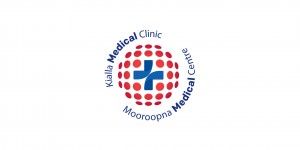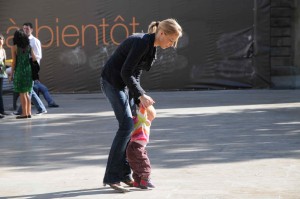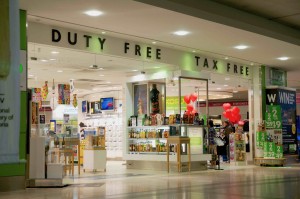Before you go | Surviving your flight | Take care at your destination
Before you go
CONSULT YOUR GP OR TRAVEL SPECIALIST
- Travellers should expect an up to a 50% chance of acquiring a travel-related illness or accident.

- All travellers, especially, the young, the aged, the infirm and pregnant, should consult their GP or travel specialist, 6-8 weeks before departure.
- Vaccines may be advised – some are routine, some are advised and some may be compulsory. Some vaccines (eg rabies) are given over a schedule of a month or more. Please prepare a detailed schedule (flights, accommodation and travel plan) of your trip before consulting your doctor.
- You may need to have a dental and/or optometric check before leaving.
ENSURE
- Your passport is valid for more than 6 months beyond your expected return date, especially when travelling in Europe (and especially in the 26 Schengen countries). You have checked that your visa and passport type are appropriate for the destination. Check with VisasDirect or your travel agent.
- The names on all bookings match passport names of all travellers.
- Keep a copy of your travel insurance policy. Your policy must cover accidents, medical evacuation and personal items carried. You must not leave Australia without an adequate insurance cover.
- Download, or arrange to collect tickets at the airport. Provide copies to next of kin.
- Credit cards are current, accessible and have adequate funds available. Carrying more than one credit card may be very helpful. Access to ATMs is often very limited in foreign countries and fraud via ATM outlets is very common, especially in Italy.
- You have sufficient current medications to cover your trip; otherwise carry a list of medications from your doctor. Carrying prescriptions may be helpful but does not guarantee a supply at your destination. Discuss with your own GP or your travel doctor. Carry a spare of any prescription glasses or magnifiers. Items needed for the protection of your health (mosquito nets, clean water items, repellents, etc) must be packed, if indicated.
- Clothing items are appropriate to your destination and season. Travel packs (medication, first aid, etc) must be considered and purchased well in advance of travel.
- You have registered with smartraveller.gov.au especially if travelling to Third World countries.
- If you plan to drive, you must have an international Driving Permit which should be carried with your domestic licence at all times. These are not available for Australians in Vietnam. Motor vehicle insurance is mandatory and must be verified at the office of the hire car company.
- At all times, travellers should carry with them details of current accommodation and contact details.
INFORMATION TO BE PROVIDED TO NEXT OF KIN
- All contact details – telephone, email and appropriate addresses.
- Your itinerary and schedule. All flight details. Double check dates and times. (photocopy)
- Provide a copy of your travel insurance policy, passport details and credit card
- A synopsis of your relevant medical history and currently prescribed medications, where appropriate.
NOTIFICATIONS BEFORE LEAVING HOME
- Inform local police if your home will be unoccupied. Forms available from GoodTrips.
- Arrange for ‘International Roaming’ on your mobile phone and provide details to family.
- Advise your bank of travel plans and ensure overseas locks are removed.
JOBS TO DO BEFORE LEAVING HOME
- Arrange for mail to be collected and pets to be boarded out.
- Stop newspaper
- Turn off mains water
- Ensure all electrical items, except for refrigerators and security lights, are switched off.
SCHOOL GROUPS
- Check above items.
- Check that adequate insurance and evacuation costs are covered by the school or organising body. If not, students must purchase appropriate insurance as individuals.
- Check with your GP if uncertain of your fitness to travel. Make sure all vaccination requirements are met.
- Known food allergies must be notified to teachers/tour organisers before travelling. Epipens and diabetes medications must be managed by individual students. Students and parents must ensure that any medications managed by teachers are appropriate for individual students and are accessible. Parents must ensure teachers are competent in the dispensing of any medication.
- Do not leave your tour group unless authorised or accompanied by an adult.
Surviving your flight
Travellers departing from most major airports might experience stress comparable with that of a Formula One driver with elevated blood pressure and heart rate. Novices might be overwhelmed by the crowds, a paucity of information in their language, underhelpful staff and an incessant noise unrelieved by Muzak.
We offer a few tips which might make your journey less stressful:
- Booking on line. Ensure you print out all details of your flight and tickets and take this with you to the airport. Do not rely on your mobile phone.
- Arrive early. You must arrive in the departure lounge at least two hours before departure. This means your parking must be arranged before (preferably by pre-booking) and your transport to the terminal completed in plenty of time.
- Checking in. Do not be smart or insulting to staff, especially in the US; you will get back more than you might expect. Your on-board luggage (check dimensions and weight regulations) should contain tickets, boarding passes, etc within easy reach and not below clothing or reading material. Your boarding pass should be printed and carried, not left to the whim of a phone with a dodgy battery. Always check baggage allowances of your airline online before leaving home. Locked luggage will be broken into in the US unless TSA-approved locks are used. Each airline has a list of prohibited items, please check before leaving home.
- Relax. Replenish any caffeine or cream puff needs, explore the duty-free shop, find a good book and consider any sleeping aids (for long-haul flights). Business or first-class passengers may have the option of a lounge with a Premium Service; many consider this worthwhile. Some credit cards offer access to airport lounges.
Do not post photos of your Boarding Pass on Facebook, unless you want the world to know your personal details.
- Economy class seats are often over-booked during holiday seasons and upgrades may be offered preferentially to members of the airline’s Frequent Flyer program. Well-suited middle-aged flyers without children will receive preference to those in jeans with kids.
- Sit wherever you want, if you can, but long-haul passengers are advised to walk around the plane often, eg after each movie, which may be difficult if sitting near a window. Minimise your alcohol consumption, maximise your fluid intake and physical activity. People with mobility difficulties eg arthritis, paralysis, etc might consider bulk head seats at the door exits. Mothers with babies might wish to utilise the same seats if they intend using a bassinette or cot. Airlines place restrictions on passengers using these seats.
- Travellers with disabilities. Always check with your travel health doctor if you have any mobility, hearing, visual or hidden disability. Some passengers will need to check with their airline (eg for wheelchair access, oxygen availability, arrangements for guide dogs, etc) well in advance of their trip, and there are many online resources available for travellers with disabilities. They need to be self-sufficient or accompanied by a carer and, where appropriate, carry a MedicAlert tag.
- Travelling with children. Travellers with babies should study the requirements of the airline before departure; information is usually available from your travel agent or from the airline web site. An unaccompanied minor (<12 years) will not be permitted to travel on an overseas flight.
Take care at your destination
Safety and Crime Avoidance
- Install the free app Whatsapp onto the phone you take with you. Buy and install a new SIM card for each country you visit.
- Make sure at least another person knows your whereabouts and itinerary at all times. If travelling alone, especially to third world countries, always notify the Australian Embassy or High Commissioner before leaving. Registration with http://www.smartraveller.gov.au is a good idea.
- Use extra caution at tourist sites, market places, crowded subways, train stations and festivals and avoid marginal areas of cities.
- Be constantly aware of your surroundings and be wary of any stranger engaging you in conversation or touching you in any way, no matter how accidental the contact may appear to be.
- Familiarise yourself with local scams and distraction techniques. If confronted always give up your valuables – money and passports can be replaced; you cannot.
- Wear your handbag across your chest and close it; button up open coats and avoid visible signs of wealth in dress, cameras or jewellery.
- Carry only a photocopy of your passport face page and legal entry stamp. Leave the actual passport in a hotel safe or at your residence. A copy of the face page should be left with family, or on their computer, at home.
- Use only ‘registered’ taxis, preferably radio taxis.
Safety in your hotel
- Keep valuables in the room safe or in the hotel safe
- Keep your hotel door locked at all times.
- On arrival, look for fire safety advice in your room and familiarise yourself with escape routes.

Safety when you drive
- Try to drive with the doors locked and windows up at all times.
- Do not drive at night or alone; especially do not drive outside urban areas at night.
- Do not drink and drive and wear seat belts at all times.
- Always carry your mobile phone with a local SIM card, while driving.
- Never ride a motorcycle or scooter in a foreign country.
Safe Food and Water
- Traveller’s diarrhoea is always caused by something you ate or drunk.
- Avoid high-risk food such as shellfish, under-cooked meats and poultry, dairy products, mayonnaise, peeled fruits and salads.
- Avoid both tap water and drinks containing ice made from tap water.
- Always wash your hands with soap and water or use a hand-sanitizer before eating and after using the toilet.
- Use sealed bottled water or chemically treated, filtered or boiled water for drinking and brushing teeth.
Blood-borne and Sexually Transmitted infections (STIs)
- Inhibitions are diminished when travelling away from the social constraints of home. Excessive alcohol and other recreational drugs can influence behaviour and may encourage unintentional risk exposure.
- STIs, hepatitis B and HIV are generally more prevalent in developing countries. Unprotected casual sex, with locals or fellow travellers, is always high risk. In some situations, eg extended safaris, needles and suture kits should be carried to avoid infection of hepatitis B and HIV through the use of surgical or dental instruments. Tattooing and body piercing are high risk activities.
It may be preferable to defer medical treatment or to travel to another facility. - Hepatitis C is usually acquired through the sharing of injecting drug paraphernalia; best to avoid under any circumstance.
- Pregnancy should be avoided when travelling to malarial zones or areas suspected of having Zika virus present. Information available from your travel doctor.
Choosing your hotel
Have you been obliged to sit on a toilet seat which was jammed against a wall? Or shared a toilet with a crowd of French tourists? Have you ever turned on a tap in your hotel room, only to have petrol mixed with the trickling water?
Selecting a hotel room from your home or from some foreign accommodation may be full of surprises. Selecting accommodation which fits in with your times of arrival and departure may be all you can hope for, at some destinations. Some use the formula – cost, comfort and convenience – when selecting a hotel.
Wherever possible, book ahead after consultation with your travel agent or after careful scrutiny via your online web browser.
- Pre-determine your arrival time at the airport and expected time of arrival at the hotel, after passing through airport checks, selecting your transport and the expected travel time. Likewise, in reverse, calculate the time and date by which you must leave your hotel in order to reach and pass through check-in at the airport and progress through the various airport rituals.
- Check that you are not sharing a room, unless that is your intention. Non-smokers do not like sharing with smokers, even after a room has been vacant for three days. Young ladies may not wish to share with any males at any time. Due diligence is mandatory in some hotels. Some accommodation is best avoided.
- Always check the bedside alarm when you arrive. The previous tenant may have set it to go off, 2 hours after you go to sleep. However, alarms may be particularly useful to you, if leaving early next day.
- Some hotels, especially in the UK, are heated or cooled throughout the year and allow no fresh air. If this is very important to you, check with the hotel before arrival. Climate control settings in Europe may not appeal to the average Australian.
- Some rooms are noisy, almost as bad as a hospital ward, seemingly designed to prevent sleep. Some hotels may offer accommodation away from lift wells or stairs; ask and yee shall learn.
- Some hotel rooms have toilets beside the shower; guests may not wish to be so close or to share the shower while using the toilet. Poor design is a feature of many hotels and can ruin your stay.
- Wherever possible, choose your room and try not to allow hotel staff to decide for you. If you are unhappy with your room, ask to change, immediately. If you like your room and may return in the future, join the hotel loyalty program and remember the room number.
WARNING
- Credit cards. Never hand over your credit card unless paying the bill. Always take great care with cards and wallets.
- Beware of hidden costs eg – resort taxes, public holiday loadings, etc, which may be imposed without your knowledge.


